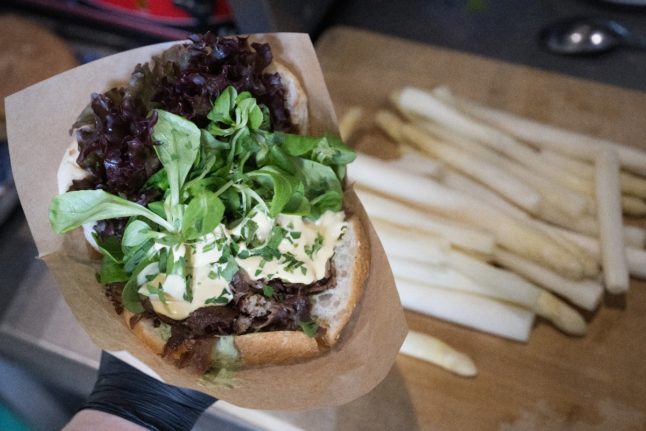When the German coalition government released plans last year on legalising recreational cannabis, the idea was for the drug to be sold nationwide in licensed stores and pharmacies. But it seems that this move was too much for the EU. And on Wednesday this week the coalition presented a revised proposal, as we reported.
The new plan, which will be carried out in two phases, still allows adults to grow and possess cannabis in small amounts – but, crucially, it won’t allow it to be sold in pharmacies and other shops nationwide, as previously envisaged. In the first stage, the coalition, made up of the Social Democrats, Greens and Free Democrats, want to permit the setting up of “cannabis clubs”, which will be non-profit groups of up to 500 members that are allowed to cultivate the drug for personal use. In future, people should be allowed to carry up to 25 grams (0.9 ounces) of cannabis and grow up to three plants at home.
The second stage would involve trials in certain regions of Germany over a five-year period, where the production and sale of cannabis would happen in specially licensed stores. Health Minister Karl Lauterbach said even though the plan had changed, the original goal remains the same. He said the government’s priorities are for “safer consumption, tackling the black market and protecting young people”.
READ ALSO: EXPLAINED: What you need to know about Germany’s plan to legalise cannabis
Tweet of the week
We want to get in on the Brotzeit action! This looks marvellous.
Known in most Bundeslander as "Abendbrot", I prefer the Bavarian term "Brotzeit" for a small snack, or in this case, a full on evening meal.
The reason I like "Brotzeit" more is quite simple, it's the translation. Who hasn't wanted to bellow "BREAD TIME!" before eating? pic.twitter.com/Yln2fAAVTE
— Nic Houghton (@40PercentGerman) April 13, 2023
Where is this?

Here’s the cruise ship Aidadiva entering the Baltic Sea resort of Warnemünde in northern Germany this week. The ship opens this year’s cruise season, which is expected to feature 134 ship calls. A total of 31 cruise ships from 22 international cruise lines will be moored in Rostock-Warnemünde this year.
Did you know?
You are probably aware of the German love of Spargel (asparagus) – and it is of course Spargelzeit right now. But did you know how far the culture stretches back? Roman conquerors likely brought the vegetable with them to Europe, and there’s evidence to suggest that it was being cultivated and consumed in Germany as far back as the 2nd Century. When the Roman Empire collapsed knowledge of how to grow asparagus faded away, and it only came back to Germany centuries later.
READ ALSO: Spargelzeit: Six things to know about the German love affair with asparagus
For the second Spargel wind, historians originally thought that Italian monks brought asparagus with them to Germany – but according to more recent discoveries, there could be another explanation.
Researchers now believe the German love affair with Spargel can be traced back to a 15th-century Italian princess by the name of Barbara Gonzaga von Mantua. After marrying Eberhard im Bart, the Count of Württemberg-Urach, Gonzaga moved from her home in Italy to Schloss Urach near Stuttgart to live with him – but as her letters home reveal, she absolutely detested Swabian food. Apparently, the princess asked her mother to send her the asparagus and seeds that she missed from home – something to counteract the stodgy Swabian diet. This could mark the moment that Spargel was reintroduced to Germany way back in the 15th or 16th century.
This article is also sent out as a weekly newsletter to members every Saturday. To sign up and get it straight into your inbox just go to your newsletter preferences.




 Please whitelist us to continue reading.
Please whitelist us to continue reading.
Member comments